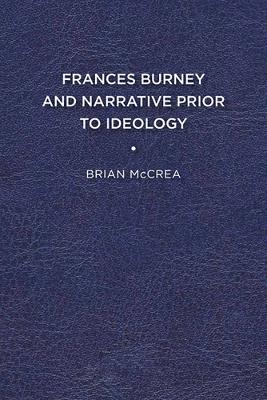Frances Burney and Narrative Prior to Ideology works between Burney's Journals and Letters and her fiction more thoroughly than any study of her in the past twenty-five years. By doing so, it offers significant reinterpretations of Burney's four novels: Evelina, Cecilia, Camilla, and The Wanderer. It describes Burney's eluding the major modern-isms through which critics have tried to read her: Feminism (with its "gendering" of beauty and reversal of gender roles); Capitalism and its Marxist critique (here the details of Burney's housekeeping become important); Professionalism (as a response to status inconsistency and class conflict); and Ian Watt's "Formal Realism" (Burney perhaps saved the novel from a sharp decline it suffered in the 1770s, even as she tried to distance herself from the genre).
Burney's most successful writing appeared before the coining of "ideology". But her standing "prior to ideology" is not a matter of chronological accident. Rather, she quietly but forcefully resisted shared explanations-domesticity as model for household management, debt as basis for family finance, professional status as a means to social confidence, the novel as the dominant literary genre-that became popular during her long and eventful life.
Frederic Jameson has described Paul de Man, "in private conversation," claiming, "Marxism . . . has no way of understanding the eighteenth century." Frances Burney and Narrative Prior to Ideology conjoins Burney's "eighteenth-centuryness" with her modernity.
- ISBN10 1644530708
- ISBN13 9781644530702
- Publish Date 26 September 2013
- Publish Status Active
- Publish Country US
- Publisher Associated University Presses
- Imprint University of Delaware Press
- Format Paperback
- Pages 234
- Language English
